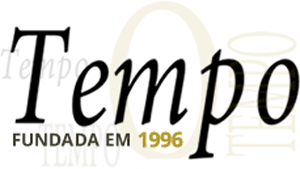|
|
In order to allow blind evaluation, the manuscripts do not have author identification in the front page, in the text and in footnotes.
All contributions must use Microsoft Word text editor or compatible (Times New Roman font, size 12, and space 1.5).
The papers must have:
-
between 36,000 and 56.000 characters (including spaces)
-
title, abstracts and keywords in Portuguese and English
-
footnotes and bibliography
-
abstract up to 950 characters (including spaces)
-
three keywords in Portuguese and English
-
bibliography quotations in body text, footnotes and in the final bibliography must comply with the standards of ABNT (as shown in the examples below)
Critical book reviews:
Book reviewers are expected to stimulate scholarly discussion by placing the book under analysis within its relevant historiographical field. Reviewers are encouraged to go beyond summarizing the book by evaluating its themes, methods, and theory. Brazilian books may be reviewed if published in the current or previous year. Foreign books may have been published up to three years before submission. Reviewers are strongly invited to avoid situations constituting a "conflict of interest".
A Tempo book reviews should have:
-
from 10.000 to 15.000 characters (with space);
-
its own title;
-
a short abstract in Portuguese and English (300 characters);
-
three keywords in Portuguese and English;
-
at least one bibliographical reference, listed at the end of the manuscript.
A Tempo interview should have:
-
from 10.000 to 15.000 characters (with space)
-
its own title;
-
a short abstract in Portuguese and English (300 characters);
-
three keywords in Portuguese and English;
-
at least one bibliographical reference, listed at the end of the manuscript.
Notes and references:
1 - Books
body text and footnote: (Bicalho, 2003, p.175)
bibliography: BICALHO, Maria Fernanda Baptista. A cidade e o Império: o Rio de Janeiro no século XVIII. Rio de Janeiro: Civilização Brasileira, 2003.
2 - Book chapter
body text and footnote: (Abreu, 2005, p. 267-289)
bibliography: ABREU, Martha Campos. Mulatas, crioulos and morenas: racialized gender in the love songs of pós-abolition, Brasil, 1890-1920. In: SCULLY, Pamela; PATTON, Diana. (Orgs.). Gender and slave emancipation in the Atlantic world. Durham: Duke University Press, 2005, p. 267-289.
3 - Journal article
body text and footnote: (Soihet, 2014, p. 1)
bibliography: SOIHET, Raquel. História das mulheres e relações de gênero: debatendo algumas questões. A Folha do Gragoatá (Niterói). n.3, p.1, 8 jun. 2014.
4 - Academic thesis
body text and footnote: (Souza, 2015, p.139)
bibliography: SOUZA, Elizabeth Santos de. O mercado de crédito na Corte Joanina: experiências das relações sociais de empréstimos (c. 1808-1821). Dissertação (Mestrado em História), Universidade Federal Fluminense. Niterói, 2015.
5 -Text from the internet:
SURNAME, Name. Title. Date (if any). Available in: www...; Accessed in: dd mm. year.
6-Work presented at an event:
Last name. Job title. In: EVENT NAME, number (if any), year, event location. Anais... Location: Publisher (if any), year. p.xxx-yyy.
7 – Archive documents (handwritten and typed, etc.)
Notes: Arquivo Histórico Ultramarino (AHU), “Application of João Cordeiro, asking for provision, for one year, to serve in the offices of notary, clerk of the Chamber and Almotaçaria in Vila de Pitangui, Comarca do Sabará”, Minas Gerais, Box 35 , Doc. 01.
|
|
